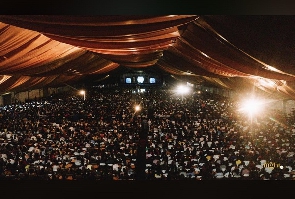The impression that all chaplains must be clerics or faith leaders persists in the minds of many people. A person from a no-faith tradition who aspires to be a chaplain is easily accused of acting religiously.
Faith in god or belief in the supernatural is seen as a prerequisite for the role of chaplaincy.
At the Regnum International School of Chaplaincy, we debated this topic. And here I present the position of my Alpha Team, arguing that chaplains must not be clerics.
To better situate our support for the motion, it is pertinent to define the terms, chaplain and cleric. Norris Burkes describes a chaplain as "one who often works in an institution caring for the spiritual needs of others. He or she elevates the spiritual concerns of the patient, inmate, student or soldier above his or her personal beliefs or needs."
The term, cleric means an official leader of the religious activities of a particular group of believers. Even though many definitions of a chaplain or chaplaincy associate it with religion and faith, a chaplain must not be a cleric.
Burkes tried to address this issue when she tackled some of the mistaken assumptions about a chaplain, including impressions that a chaplain must be a male or a Christian; a chaplain must be someone perfect in behavior and conduct, or a person that should not have or sometimes display some shortcomings.
She noted that sometimes, to fulfill her role as a Christian chaplain, she had to hide her beliefs and not disclose her faith. Burkes made it clear that chaplains should be of service to both believers and nonbelievers alike.
The role of a chaplain is to provide emotional and spiritual support to individuals in challenging situations, such as military personnel, patients, prison inmates, students, workers, and families. These individuals come from different backgrounds and belief systems.
While religious guidance is important for some, it does not resonate with everyone. Our society is increasingly diverse, with a significant number of people identifying as non-religious or following non-traditional spiritual paths.
And humanist chaplains play a vital role in filling this gap. They provide support that is secular and inclusive, ensuring that those who do not subscribe to a particular religious faith still have access to emotional support, guidance and compassionate care.
The presence of humanist chaplains acknowledges and respects the diversity of belief systems. Humanist chaplaincy offers a form of support that is based on shared human values rather than religious doctrine.
Moreover, the assumption that all chaplains must be pastors or clerics can alienate and exclude those who might benefit from chaplaincy services but do not feel comfortable seeking help from a religious figure.
For instance, a soldier who identifies as an atheist may not feel understood or supported by a pastor. The soldier would likely feel more at ease with a humanist chaplain who respects and affirms their worldview.
In hospitals, the presence of humanist chaplains ensures that patients and their families receive care that aligns with their personal beliefs, providing solace and understanding without the need for religious context and confession. Similarly, in prisons, where inmates grapple with their predicament and seek meaning, having access to a humanist chaplain can be transformative and affirming.
In educational settings, students are navigating a critical period of identity formation. They benefit from having chaplains who can provide guidance and support without imposing religious beliefs. This inclusive approach helps foster an environment of acceptance and respect for diverse perspectives.
The workforce is another area where humanist chaplains are invaluable. Employees, who are dealing with stress, grief, or ethical dilemmas can receive unbiased support, which could significantly improve workplace morale and mental health.
In addition, chaplains and clerics are related but not identical. While many chaplains are indeed clerics, the roles and responsibilities differ. The clerics are typically associated with a specific religious congregation or community. They lead worship services, perform sacraments, and provide spiritual guidance.
They often focus on the spiritual needs of their congregation. But chaplains serve in various settings (hospitals, prisons, military, universities, etc.). They provide spiritual care and emotional support to people of all faiths (or none). They focus on guidance, counseling, and pastoral care.
Chaplains may be clerics, but not all clerics are chaplains. Chaplains often work in secular settings, while clerics typically work within their religious communities . However, both roles require strong spiritual leadership, empathy, and a passion for serving others.
In conclusion, while pastors and other clerics bring essential skills and perspectives to chaplaincy, we must recognize and incorporate the need for humanist chaplains, and by extension the needs of the humanist public. Humanist chaplains ensure that everyone, regardless of their religious affiliation or lack thereof, has access to relevant support.
This inclusivity not only respects the diversity of our society but also upholds the fundamental principle that everyone deserves care and understanding in times of need. Based on these points, we strongly propose that chaplains must not be clerics.
Opinions of Saturday, 6 July 2024
Columnist: Leo Igwe



















